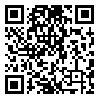Volume 18, Issue 4 (3-2021)
sjsph 2021, 18(4): 355-372 |
Back to browse issues page
Download citation:
BibTeX | RIS | EndNote | Medlars | ProCite | Reference Manager | RefWorks
Send citation to:



BibTeX | RIS | EndNote | Medlars | ProCite | Reference Manager | RefWorks
Send citation to:
Labaf A, Jalili M, Jaafari Pooyan E, Mazinani M. Management of Covid-19 Crisis in Tehran University of Medical Sciences Hospitals: Challenges and Strategies. sjsph 2021; 18 (4) :355-372
URL: http://sjsph.tums.ac.ir/article-1-5962-en.html
URL: http://sjsph.tums.ac.ir/article-1-5962-en.html
1- Associate Professor of Emergency Medicine, Department of Emergency Medicine, School of Medicine, Tehran University of Medical Sciences, Tehran, Iran
2- Professor of Emergency Medicine, Department of Emergency Medicine, School of Medicine, Tehran University of Medical Sciences, Tehran, Iran
3- Associate Professor of Health Care Management, Department of Health Management and Economics, School of Public Health, Tehran University of Medical Sciences, Tehran, Iran ,jaafaripooyan@tums.ac.ir
4- MSc in Health Services Management
2- Professor of Emergency Medicine, Department of Emergency Medicine, School of Medicine, Tehran University of Medical Sciences, Tehran, Iran
3- Associate Professor of Health Care Management, Department of Health Management and Economics, School of Public Health, Tehran University of Medical Sciences, Tehran, Iran ,
4- MSc in Health Services Management
Abstract: (4716 Views)
Background and Aim: The strategies of hospitals in confronting the Covid-19 crisis is extremely important in the control and management of this epidemic. Exploring the challenges and suitable strategies for controlling biological epidemics in Tehran University of Medical Sciences (TUMS) hospitals might pave the way for better management of possible similar crises in the future.
Materials and Methods: This was a qualitative, exploratory and inductive study including 22 health professionals from TUMS involved in the management of the disease. Data were collected using semi-structured interviews and analysed by thematic analysis, using MAXQDA.
Results: The most important challenges identified were related to the lack of preparedness at the macro-level, impracticability of controlling the use of personal protection equipment (PPE) and the consumption of medications, as well as provision of equipment, medications and protecting medical devices. The effective strategies and interventions in the pandemic were grouped into the following categories: manpower, education, communications, clinical work, decision-making and organizational activities.
Conclusion: Preventive measures and preparedness before the onset of the crisis have not received sufficient attention. Hospitals could have an important role in confronting the crisis through promoting work efficiency and standards. Timely prevention and preparedness before a pandemic as regards medications, personal protection equipment and diagnostics are extremely essential, as are timely and flexible decisions by crisis committees and the control of manpower emotions flux during crisis management.
Materials and Methods: This was a qualitative, exploratory and inductive study including 22 health professionals from TUMS involved in the management of the disease. Data were collected using semi-structured interviews and analysed by thematic analysis, using MAXQDA.
Results: The most important challenges identified were related to the lack of preparedness at the macro-level, impracticability of controlling the use of personal protection equipment (PPE) and the consumption of medications, as well as provision of equipment, medications and protecting medical devices. The effective strategies and interventions in the pandemic were grouped into the following categories: manpower, education, communications, clinical work, decision-making and organizational activities.
Conclusion: Preventive measures and preparedness before the onset of the crisis have not received sufficient attention. Hospitals could have an important role in confronting the crisis through promoting work efficiency and standards. Timely prevention and preparedness before a pandemic as regards medications, personal protection equipment and diagnostics are extremely essential, as are timely and flexible decisions by crisis committees and the control of manpower emotions flux during crisis management.
Type of Study: Research |
Subject:
Public Health
Received: 2021/03/15 | Accepted: 2021/03/15 | Published: 2021/03/15
Received: 2021/03/15 | Accepted: 2021/03/15 | Published: 2021/03/15
Send email to the article author
| Rights and permissions | |
 |
This work is licensed under a Creative Commons Attribution-NonCommercial 4.0 International License. |





